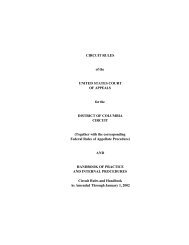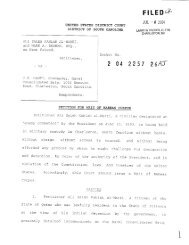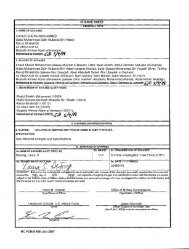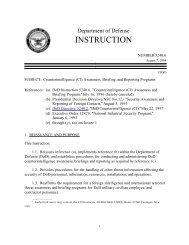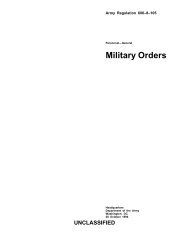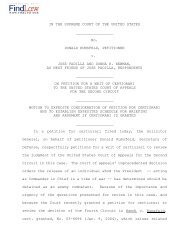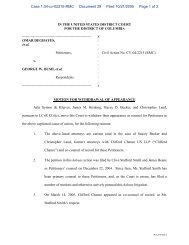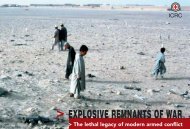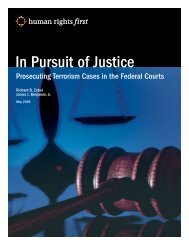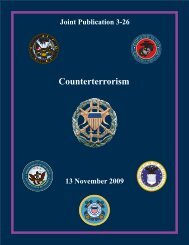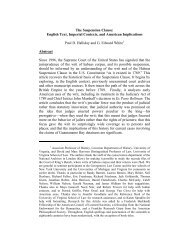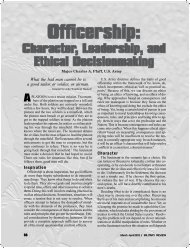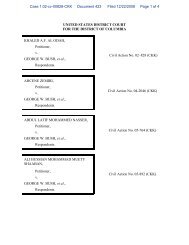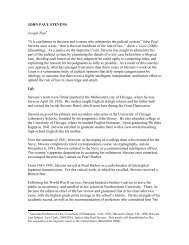Government Merits Brief - Hamdan v. Rumsfeld
Government Merits Brief - Hamdan v. Rumsfeld
Government Merits Brief - Hamdan v. Rumsfeld
Create successful ePaper yourself
Turn your PDF publications into a flip-book with our unique Google optimized e-Paper software.
33<br />
spected * * * in all circumstances.”). It does not follow<br />
from the fact that the Convention established a duty for peer<br />
nations to ensure enforcement through political and diplomatic<br />
channels, however, that the Convention created a right<br />
to enforcement by individuals through the domestic courts.<br />
Article 8 of the 1949 version provides that the Convention<br />
is to be “applied with the cooperation and under the scrutiny<br />
of the Protecting Powers.” 6 U.S.T. at 3324, 75 U.N.T.S. at<br />
142. 9 Reliance on “protecting powers” was also a feature of<br />
the 1929 version. See 1929 Convention art. 86, 47 Stat. 2060,<br />
118 L.N.T.S. at 393. Article 11 of the 1949 version, however,<br />
clarified and increased the role of the protecting powers in<br />
resolving disagreements. See 1949 Convention art. 11, 6<br />
U.S.T. at 3326, 75 U.N.T.S. at 144 (“[I]n cases of disagreement<br />
between the Parties to the conflict as to the application<br />
or interpretation of the provisions of the present Convention,<br />
the Protecting Powers shall lend their good offices with a view<br />
to settling the disagreement.”). Article 11 thus created a primary<br />
method for resolving disputes relating to application<br />
and interpretation of the Convention. See Howard S. Levie,<br />
Prisoners of War in International Armed Conflict, 59 Int’l L.<br />
Stud. 1, 87 (1978).<br />
Article 132 of the 1949 version created another method for<br />
resolving disputes. It states that, “[at] the request of a Party<br />
to the conflict, an enquiry shall be instituted, in a manner to<br />
be decided between the interested Parties, concerning any<br />
alleged violation of the Convention.” 6 U.S.T. at 3420, 75<br />
U.N.T.S. at 238. Article 132 further states that if “agreement<br />
has not been reached concerning the procedure for the enquiry,<br />
the Parties should agree on the choice of an umpire<br />
who will decide upon the procedure to be followed.” Ibid.<br />
9<br />
In recent times, the role of the “protecting power” has been performed by<br />
the International Committee of the Red Cross. In 1949, it was typically<br />
performed by a neutral State.



